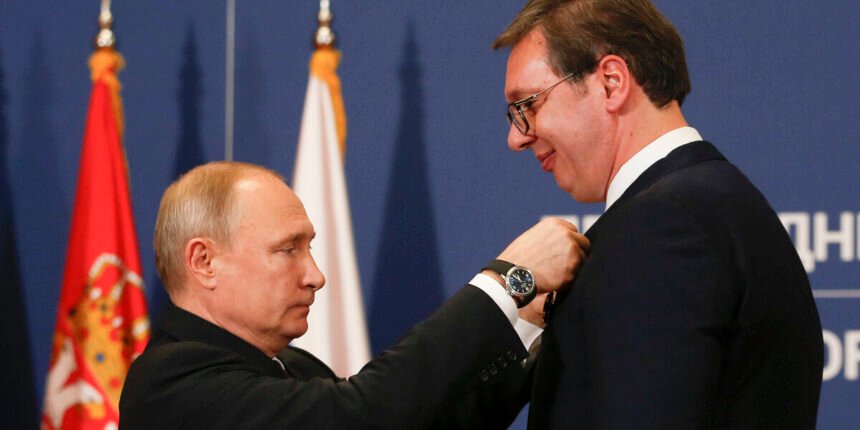Russia is waging a shadow war against Western countries, as reported in the Helsinki Commission’s report titled “Russia’s Shadow War Against NATO”.
In this endeavor against countries aiming for Western democracy, Russia is not alone.
Serbia, one of the few European states not imposing sanctions for the war in Ukraine, is copying Russia, but only as a cheap imitation.
The targets of this shadow war, based on the report are countries supporting Ukraine.
“In conjunction with its war in Ukraine, Russia is simultaneously executing a shadow war on NATO to destabilize, distress, and deter the transatlantic alliance from its staunch support of Ukrainian sovereignty,” states the Helsinki report.
One of Ukraine’s immediate supporters is Kosovo, which, alongside aid, trains Ukrainian soldiers with the United Kingdom. Kosovo also participates in the Contact Group for the Defense of Ukraine.
Similarities between Serbian and Russian Actions
Per the Helsinki report, Russia’s identified hybrid operations are divided into four categories: attacks on critical infrastructure, violent campaigns, militarization of migration, and interference in elections and information campaigns.
- Violent Campaigns – Attack in Banjska and against KFOR
- Attacks on Critical Infrastructure – Attack on Iber Lepenc
- Election Interference – Serbian List’s Withdrawal from Kosovo Elections
Although this list is long, demonstrating Serbia’s attempt to emulate Russia in hybrid warfare, these efforts have backfired, turning into “own goals” like the terrorist attack in Banjska.
However, this isn’t the only thing making Serbia a copy of Russia. What makes it a “Chinese” copy is Serbia’s closeness to China. The purchase of Chinese armaments is a key area of Vučić’s military policy. Meanwhile, the free trade agreement between these two countries is the first of its kind that China has made in Central and Eastern Europe.







